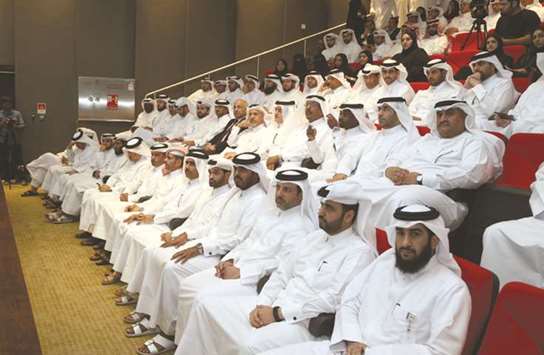Qatar Development Bank (QDB) is working on a prototype of a new product to support environment-friendly houses in Qatar that encourages home farming, CEO Abdulaziz bin Nasser al-Khalifa revealed yesterday.
The concept could be implemented mainly through hydroponics and greenhouses. A list of companies would be given to the willing house owners to supply them with the necessary equipment and assistance while the bank would provide the required funding.
Speaking at a panel discussion at the 2nd Forum for Creativity and Innovation, organised by Kahramaa, al-Khalifa further stressed QDB’s keenness on encouraging innovation and creativity in business through various initiatives, which resulted in introducing several new products that could help enhance economic development and diversity.
Hassad Food Company CEO Mohamed Badr al-Sada expected that Qatar will achieve its food security goals in the next few years.
He said that innovative solutions were adopted immediately after the blockade and the first alternative food supplies arrived in the country within the first 24 hours of the crisis. The entire food requirement of Qatar was completely covered within just five days through alternative suppliers.
He pointed out that Hassad Food is set to increase its poultry production by the next summer and will transfer a major meat production project from Australia to Qatar in co-operation with Widam Food Company. Hassad Food produces around 50% of all the local vegetables and fruits, which accounts for only 6-7% of the local market consumption. Accordingly, there is a plan to encourage non-producing farms, estimated to be around 50-70% of the total number of the farms in the country, to be productive soon with an initial target of 60 hectares in the first phase of the project. The company would supply the necessary funding through QDB and buy the produce to be marketed locally. A total of 150 farms have responded to the initiative so far, accounting for 30% of the targeted number. The CEO of QDB said that each farm would be given QR1mn with half the amount for equipment and the other half for greenhouses.
Supreme Committee for Delivery and Legacy secretary general Hassan bin Abdullah al-Thawadi said maximum use will be made of the sport projects and facilities of FIFA 2022 World Cup beyond the event to achieve development in the country and the realisation of Qatar National Vision 2030.
“For instance, the cooling technology used for huge stadiums could be adapted for use at farms to achieve the desired food security. Besides, the committee succeeded in cooling open areas and this was done in Katara and Aspire Zone.
The idea itself can be exported as well to support economic diversity in the country. The committee is keen to ease the state’s economic cost of the FIFA 2022 World Cup projects. Accordingly, all the venues of the event have been linked to the proposed metro stations to reduce the cost of road construction for instance.
Al-Thawadi pointed out that the committee implements the standards of sustainable buildings in all its projects with Global Sustainability Assessment System (GSAS) accreditation.
Al-Thawadi said some parts of the playgrounds in various neighbourhoods could be used as plant nurseries and greenhouses to supply the needs of the surrounding areas.
The Public Works Authority (Ashghal) president Dr Saad bin Ahmed al-Muhannadi said that creativity and innovation are the most important factors for success, and should be the basis for any work environment.

CEO of QDB Abdulaziz bin Nasser al-Khalifa; Secretary General of Supreme Committee for Delivery & Legacy, Hassan bin Abdullah al-Thawadi; CEO of Qatar Rail Eng. Abdullah al-Subaie, panellists and a section of the audience at the forum yesterday. PICTURE: Anas Khalid
